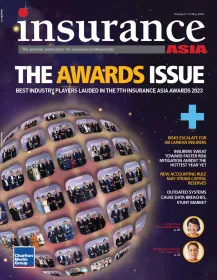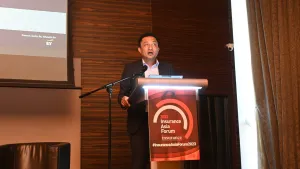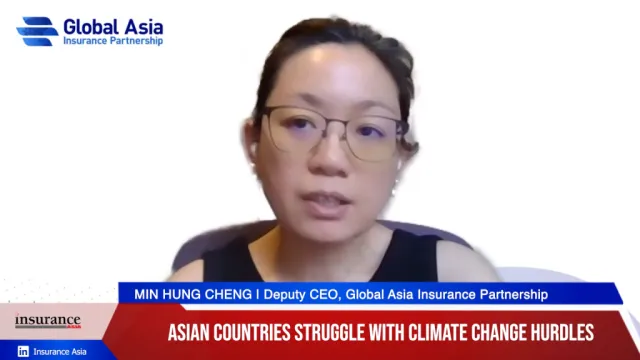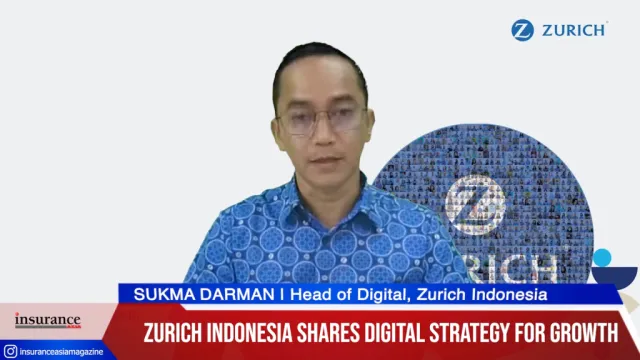
Outdated systems cause data breaches, dragging the Philippine insurance market’s growth potential
Insurance experts warn of poor systems leading to the disruption of digital adoption, whilst partnership opportunities could boost growth.
Beginning insurers’ digital transformation with legacy systems is risky, as experts warned that old technology and data breaches are becoming detrimental to the overall potential growth of the industry.
This was pointed out at the 2023 Insurance Asia forum in Manila, when Tyler Thuy Long, ZA Tech’s country manager for the Philippines and Vietnam, stressed that the majority of insurers primarily begin their digital transformation with legacy systems too old to innovate, dragging their overall potential growth.
These legacy systems often come with limitations that can hinder the development of new products and insurance channels.
Recent data from a BCG analysis revealed that only 30% of digital transformation initiatives succeed. While ZA Tech has achieved remarkable success, the company acknowledged that it had encountered its fair share of obstacles.
Long cited an example where a seemingly minor technical issue regarding character limits in an address field caused significant delays and financial setbacks.
“Our recommendation is that the first step for the digital journey should be [to] identify and remove the legacy by error to the organisers. And consider adopting the cloud native and micro service architecture core system, because it will provide scalability. And also, more importantly, can allow you to use [and] trust the [in] future all the capabilities you need,” suggested Long.
Safeguarding the digital insurance industry
Insurance experts conversed about their comprehensive views of the challenges and strategies involved in safeguarding the digital insurance industry in the Philippines amidst the dangers of sharing personal data.
FWD Life Insurance Chief Risk Officer Angela Rowley, an industry veteran with over 30 years of experience, highlighted the ever-growing significance of personal data protection in the digital age.
Ransomware attacks and data breaches have become frequent occurrences, affecting organisations with substantial data repositories. Rowley stressed the need for constant vigilance and adaptability to ensure cybersecurity, given the evolving threat landscape.
“We have to be always aware of – what are the changes? How do we need to adapt? How do we need to improve our cyber stance? So, I really see that as the biggest threat we need. And we have to be always on our toes for this,” Rowley said.
Samson Kenneth Radovan, head of Enterprise Digital Transformation at AIA, said that compliance amongst the market’s regulation must be kept sacred by insurers despite varying levels of standards.
“You have to make sure that you’re compliant, even with the Hong Kong regulators, which has proven to be quite costly, depending on the amount of risk acceptance that you want to take. So I think that's going to be very different across the different organisations,” Radovan said.
“I think when you look at cybersecurity, it’s going to cut across your entire transformation. And across all the different digitisation projects that are going to be there. And so it really entails a culture change, mindset change, and a true risk assessment for the appetite of compliance risks that the organisation is willing to take,” he added.
Mirroring Radovan’s perspective on costs, Rowley emphasised that as insurers, the industry needs to brace for possible costs and risks.
“As insurance companies, we actually do have to spend a lot of money to make sure we have the latest tools. You know, we do simple things like are we always patching everything, you know, it’s not sexy stuff,” Rowley noted. “But Filipinos expect us to know what we’re doing, we have to do our best.”
She said it is this demand from customers that keeps her insurance firm focused on always staying one step ahead.
The panel also confronted the issue of reputation risk associated with data breaches. Noting that the Philippines remains challenged in terms of financial literacy and data awareness, insurance providers need to focus on customer-centric data protection measures.
Pradeep Bhanotha, president and CEO of AXA Group Operations-Philippines, stressed the need for early education.
Pointing out that a significant portion of hacking incidents is a result of children inadvertently sharing sensitive information, AXA has launched Cyber Venture, an interactive training platform designed to educate and engage young people on cybersecurity.
AI and machine learning in insurance
The panel acknowledged the potential of AI and machine learning in enhancing the insurance industry.
But Rowley raised concerns about the misuse of AI for fraudulent purposes and the need for robust fraud prevention mechanisms.
Radovan stressed the importance of proper training and continuous monitoring of AI models to minimise process failures.
“AI is more in the back end, not the front end so far. So you’re making the databases smarter, getting the right information for the customers so that this agent can speak the right things about them, giving them the right background that is more important. But that’s how AI and, you know, basically machine learning is being used today. We need to go ahead and we will, it’s a matter of journey. The destination is very clear.” concluded Bhanotha.
Outlook
Etiqa Philippines President and CEO Rico T. Bautista stated that the pandemic altered digitalisation in the Philippines through the cross-collaboration of various e-commerce platforms. Etiqa Philippines, for its part, partnered with leading platforms such as Lazada, Shopee, and GCash to expand its reach and distribute insurance policies.
Despite the challenges, he said the life insurance industry has shown resilience, with positive growth in premium income and assets over the past five years.
Bautista highlighted areas where the industry was thriving, such as renewal performance, but also identified challenges, including policy contestability definitions, IFRS readiness, regulatory changes, and technological advancements.
“What’s the outlook? Inflation is expected to impact the entire insurance cost of a chain from acquisition to claims. Insurance will reinvent and expand in new directions mainly health and protection products through technology,” he said.
“Partnerships or collaborations [are] to open new revenue streams. Introduction of sustainability in the insurance business model [is another]. So, we believe that these are the things that all of us will have to face and go through,” he added.











 Advertise
Advertise












